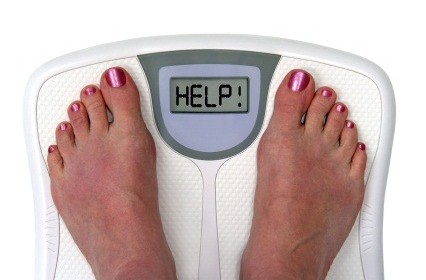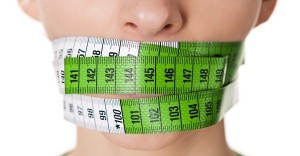It frustrates me that there is such a huge focus in the media on the importance of overweight people losing weight, however you never hear about how important it is for underweight people to gain weight. Afterall, being underweight can be just as harmful to a persons health as being overweight. I found the following article really interesting and thought I would share it with you all. not only does it emphasize the damgers of being underweight, bit it also offers advice about how one can healthily gain weight.
Source: http://familydoctor.org/familydoctor/en/prevention-wellness/food-nutrition/healthy-food-choices/healthy-ways-to-gain-weight-if-youre-underweight.html
Healthy Ways to Gain
Weight If You’re
Underweight
Is being underweight really a problem?
Weight loss is a serious issue in the United States. Consumers constantly see advertisements and news reports on trendy diets, flashy products and magic pills promising to help them lose weight.Given that the ongoing “battle of the bulge” is front and center for so many people, being too thin may seem like a good problem to have. But the reality is that being underweight can cause health problems.
Fat has a bad reputation for causing overweight and obesity. However, not all fat is bad. In fact, breaking down and storing energy (or calories) as fat is just one of the many ways the body uses food to function, heal and grow.
The energy stored in fat helps you get through a strenuous job or workout. It also plays a key role in brain development, preventing inflammation (swelling) and blood clots. Fat also supports healthy hair and skin.
It’s important to understand that balance is a key in maintaining a healthy body–whether you’re over- or underweight.
How do you know if you’re underweight?
Using a tool to calculate your body mass index (BMI) can help determine if you’re underweight. Your family doctor can also help determine if you’re underweight based on your height, weight, what you eat and your activity level.What problems can being underweight cause?
People who are underweight typically are not getting enough calories to fuel their bodies. Often, they are also suffering from malnutrition, since they aren’t taking in enough vitamins and minerals from their food. If you’re underweight, you may be at risk for the following health issues:- Inhibited growth and development. This is especially true in children and teens, whose bodies need plenty of nutrients to grow and stay healthy.
- Fragile bones. A deficiency in vitamin D and calcium along with low body weight can lead to weak bones andosteoporosis.
- Weakened immune system. When you don’t take in enough nutrients, your body cannot store energy and may also have difficulty fighting illness. It may also be difficult for your immune system to bounce back after being sick.
- Anemia. This condition can be caused by iron deficiency, folate deficiency and vitamin B12 deficiency, resulting in dizziness, fatigue and headaches.
- Fertility issues. In women, low body weight can lead to irregular periods, lack of periods and infertility.
- Hair loss. Low body weight can cause hair to thin and fall out easily. It can also cause dry, thin skin and teeth health issues.
What causes low body weight?
Low body weight can stem from a variety of causes. While some underweight people are otherwise physically healthy, others suffer from underlying health concerns that should be treated. The following are some possible causes of being underweight:- Genetics. If you’ve been thin since high school and being thing runs in your family, it’s likely that you were born with a higher-than-usual metabolism. You also may have a naturally small appetite.
- High physical activity. If you’re an athlete, you are probably aware that frequent workouts can affect your body weight. However, high physical activity can also flow from an active job or an energetic personality. If you’re on your feet frequently, you may burn more calories than people who are more sedentary (inactive).
- Illness. Being sick can affect your appetite, as well as your body’s ability to use and store food. If you’ve recently lost a lot of weight without trying, it may be a sign of disease, such as thyroid problems, diabetes, digestive diseases or even cancer. Be sure to talk to your doctor about sudden weight loss.
- Medicines. Certain prescription medicines can cause nausea and weight loss. Some treatments, such as chemotherapy, can reduce appetite and worsen weight loss from illness.
- Psychological Issues. Our mental well being affects every part of our lives. Factors like stress and depression can disrupt healthy eating habits. Severe body image fears and distortions can also lead to eating disorders. If you’re suffering from damaging emotional issues, be sure to talk to your family doctor. He or she can help you get the care, assistance or counseling you may need.
Is it possible to gain weight in a healthy manner?
A weight gain program may seem like an opportunity for indulgence. Just grab some French fries and have at it! Unfortunately, just as healthy weight loss requires a balanced approach, healthy weight gain means more than adding junk food to your daily meals.While eating junk food may result in weight gain, it will not address the nutritional deficiencies that come with being underweight. Further, even if the fat, sugar and salt common in junk food don’t show up as extra weight, they can still harm your body. To maximize healthy gains, try the following tips.
Add healthy calories. Without radically changing your diet, you can increase your calorie intake with each meal by adding nut or seed toppings, cheese and healthy side dishes. Try almonds, sunflower seeds, fruit or whole-grain wheat toast.
Go nutrient dense. Instead of eating a lot of empty calories and junk food, focus on eating foods that are rich in nutrients. Consider high-protein meats, which can help you to build muscle. Also, choose nutritious carbohydrates, such as brown rice and other whole grains. This helps ensure your body is receiving as much nourishment as possible, even if you’re dealing with a reduced appetite.
Snack away. Enjoy snacks that contain plenty of protein and healthy carbohydrates. Consider options like trail mix, protein bars or drinks, and crackers with hummus or peanut butter. Also enjoy snacks that contain “good fats,” which are important for a healthy heart. Examples include nuts and avocados.
Eat mini-meals. If you’re struggling with a curbed appetite due to medical or emotional issues, taking in large portions of food may not seem appealing. Consider eating smaller meals throughout the day to increase your calorie intake.
Bulk up. While too much aerobic exercise will burn calories and ultimately work against your weight goal, strength training– such as weight-lifting or yoga–can help you gain weight by building muscle.
Before beginning any major weight gain program, be sure to consult your family doctor. Being underweight may indicate an underlying health issue, which won’t be corrected by diet changes. Your physician also will be able to help you track your progress and make sure that healthy changes are taking place.



.jpg)





.jpg)
